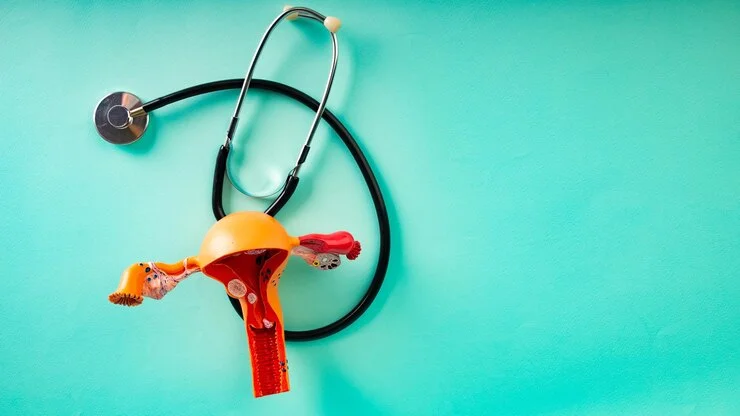-
Ganesh Talkies, Kolkata
Ganesh Talkies, Kolkata

Recover after a vaginal hysterectomy with expert tips on pain management, nutrition, and emotional well-being. Learn how to ensure a smooth and quick recovery process from one of the best lady gynecologists.

A vaginal hysterectomy is a common procedure that many women undergo for various reasons, such as treating fibroids, endometriosis, or other reproductive health issues. While the procedure itself is relatively safe, the recovery process is an important part of your healing journey. To recover quickly after a vaginal hysterectomy, it’s essential to follow specific guidelines, manage your expectations, and be aware of the recovery stages.
In this guide, will explain what to expect during the recovery period and provide helpful tips for managing pain, resuming normal activities, and ensuring a smooth recovery. If you are looking for reliable guidance from one of the best professional gynecologists, this article will help you get an overview of the necessary steps for a quicker recovery.
A vaginal hysterectomy involves the removal of the uterus through the vaginal canal, leaving no visible incision on the abdomen. This procedure is preferred by many gynecologists because it generally results in less pain, a shorter hospital stay, and a quicker recovery compared to an abdominal hysterectomy.
Recovering from a vaginal hysterectomy is a gradual process. Most women can expect to return to normal activities in about six weeks, but full recovery may take up to three months. Here is a comprehensive guide to help you navigate through the recovery phase.
The first few days after your vaginal hysterectomy are crucial. Your healthcare team will monitor your recovery and ensure there are no complications. Immediately after the surgery, you may experience:
After a vaginal hysterectomy, pain management is crucial to ensure you can manage discomfort while healing. Your doctor may prescribe pain relief medications such as non-steroidal anti-inflammatory drugs (NSAIDs) or stronger medications depending on your specific case.
While rest is important in the first few days, it’s also essential to begin moving gently to prevent complications like blood clots and constipation. Gentle movement encourages circulation and speeds up the healing process.
Your healthcare provider will give you a timeline for returning to normal activities. Most women are able to resume light activities within 4-6 weeks, while more strenuous activities like exercise and sex should be avoided for at least 6-8 weeks.
A well-balanced diet is essential for healing. After a vaginal hysterectomy, your body needs proper nutrition to recover effectively. Focus on eating foods that are rich in vitamins and minerals, particularly those that support tissue healing and boost immunity.
One important aspect of recovery is taking care of your pelvic floor muscles. These muscles may weaken after surgery, and it’s essential to strengthen them to avoid future complications.
The recovery process after a vaginal hysterectomy is not only physical but emotional as well. It’s normal to experience feelings of sadness, anxiety, or frustration, especially as your body changes.
While most women recover without complications, it’s essential to be aware of signs that could indicate a problem. Contact your healthcare provider immediately if you experience:
Once the acute recovery phase is over, there are steps you can take to ensure long-term health and well-being. Maintaining pelvic health is critical to avoid complications in the future.

Recovery from a vaginal hysterectomy typically takes about 6-8 weeks. Full recovery may take longer, and you should avoid strenuous activities during this time.
Most women can resume sexual activity around 6-8 weeks post-surgery, but it’s important to get clearance from your healthcare provider.
Yes, some vaginal discharge or light bleeding is common in the first few days to weeks after surgery. If the discharge becomes foul-smelling or heavy, contact your doctor.
Avoid lifting heavy objects, strenuous exercise, and sexual activity for 6-8 weeks after surgery. Your doctor will provide specific guidelines.
You can start gentle walking and stretching after a few weeks, but avoid intense exercise until your doctor gives you approval.
Recovering after a vaginal hysterectomy involves a combination of physical care, emotional support, and adherence to your healthcare provider’s advice. By focusing on pain management, gentle movement, proper nutrition, and emotional well-being, you can ensure a smooth and speedy recovery. Always stay in close contact with your doctor during the recovery process to address any concerns and ensure optimal healing. Remember, recovery takes time, so be patient with yourself and allow your body the time it needs to heal properly.
If you’re looking for expert care, finding the best lady gynecologist in Kolkata can make all the difference in ensuring a safe and healthy recovery. Proper guidance can help you manage your recovery journey effectively.